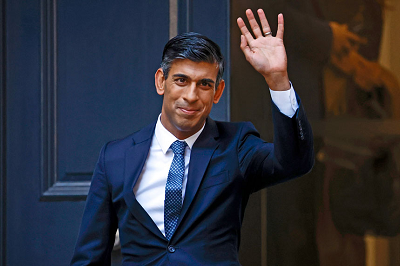London, (Asian independent) Ruling out that he had doubts on the Rwanda plan as Chancellor, UK Prime Minister Rishi Sunak has said it was his job to ensure value for money on every proposal while he was in the Treasury.
According to The Evening Standard, Sunak said it was “wrong” to infer that he did not back the scheme to stop channel crossing, following a BBC report, which said he was not convinced of the plan’s effectiveness.
Citing No 10 papers from March 22, the BBC said last week that Sunak was also concerned about the cost of sending asylum seekers to Africa and wanted to limit the numbers.
Sunak said he has not seen the documents the report was based on as he appeared on the BBC on Sunday.
However, he did not rule out having voiced concerns about the cost of sending asylum seekers to the east African country when at the Treasury.
“My job (was) to ask probing questions of every proposal that crossed my desk as chancellor,” the Conservative Party leader told the BBC.
“You should always ask probing questions, you should always approach things from a position of scepticism to ensure that you get value for money for taxpayers.
“But to infer from that that I don’t believe in the scheme or the principle of deterrence is wrong. I was doing my job to get good value for money for taxpayers,” the Prime Minister added.
The documents had said that as Chancellor, Sunak felt “hotels are cheaper” than reception centres to house migrants, and was reluctant to fund “Greek-style reception centres” at a cost of 3.5 million pounds per day.
The Rwanda plan, launched in April 2022 by then Prime Minister Boris Johnson, became the core of Sunak’s policy to stop the boats — one of five key priorities, which he set out to achieve when he became the premier in October the same year.
Calling the British Government to publish the No 10 papers, Labour MP Yvette Cooper said: “It is time the Tory Government was honest with the public, and publish both the papers outlining Rishi Sunak’s concerns and the full details of the cost of the scheme.”








